Certain groups attempt to create civil war in Lebanon, Hezbollah chief warns
The secretary-general of Lebanon’s Hezbollah resistance movement has warned against attempts by certain groups to foment a civil war in the cash-strapped country on economic, racial, and religious grounds, emphasizing that the movement will not allow anyone to realize such a fiendish plot.
Those, who become frustrated in the face of the country’s resistance, could resort to the option of trying to ignite such an internal conflict, Sayyed Hassan Nasrallah said in a televised speech broadcast from the Lebanese capital city of Beirut on Thursday evening.
"I have information that there are outside forces and some internal ones that are pushing towards civil war ... They are looking for the fuel to add to the fire,” he said.
“The chaos in Lebanon is aimed at driving Lebanon into a civil war and this is a red line,” he, however, added.
Lebanon is experiencing its worst economic crisis in decades, compounded by the COVID-19 pandemic. Prices are skyrocketing and more than half of the population is now living below the poverty line.
Nasrallah’s remarks came as the country’s major cities are hosting fresh protests at the situation afflicting the economy that is falling apart at the seams. He, therefore, entitled the high point of his address to the domestic woes.
“Lebanon is at the heart of a true and great national economic, livelihood, financial, and also political crisis,” he said, noting, “It can also be described as a crisis of the establishment.”
Nasrallah categorically dismissed that his movement harbored any intention to exacerbate the already explosive situation.
“Some say that Hezbollah is the party, which has weapons [and may start a civil war]. This rhetoric is wrong since the civil war can be waged by light arms and such arms are found everywhere in Lebanon and are in the hands of many people,” the Hezbollah chief said.
Hezbollah has no intention to resort to its weapons in a bid to form a government or to deal with the economic and financial crisis.
Since the Lebanese government formally resigned after a massive explosion in Beirut port last August, domestic political divisions and pressure by some Western states have hindered the formation of a formal cabinet.
‘US pressure main factor behind crisis’
Nasrallah pointed to the pressure that the United States was applying to Lebanon as a main principle driving the country’s crisis.
The United States wants for Lebanon to “be placed in the US-Israel axis” in the same way that such regional countries as the United Arab Emirates and Bahrain did by normalizing their relations with the Israeli regime through Washington’s facilitation, he stated.
Nasrallah questions dependence on IMF
Without a formal cabinet, the country cannot resume negotiations with the International Monetary Fund (IMF) for potential bailout packages.
Even if the country was to be thrown such a lifeline, it would be required by the IMF and the West to enact certain “reforms” in its political structure. The reforms entail introduction of stringent austerity measures, the biggest part of whose burden falls on the people.
Lebanese Prime Minister-designate Saad al-Hariri alleged earlier that the only way to stop the country’s economy from total collapse was to re-engage with the IMF.
“The main priority of any government is to prevent the collapse that we are facing today... that we proceed to start halting the collapse with the IMF and regain the trust of the international community,” Hariri said at a press conference at the presidential palace in Baabda.
Nasrallah, however, asked whether the Lebanese nation could bear the burden of the IMF’s conditions, including subtraction of subsidies from staples.
He considered the country’s economic policies, including the policy of burrowing money from others, to be one of the reasons that Lebanon had ended up this way.
The American pressure, he added, was aimed at forcing Lebanon into “resorting to certain economic options.”
It was this very fear of Washington that was scaring some inside the country from strengthening its ties with China.
Hezbollah agrees to a technocratic-political govt.
The Hezbollah leader, meanwhile, signaled his movement’s approval of the formation of a government composed of technocrats and politically influential elements at the same time.
He said if Hariri and President Michel Aoun reached an agreement on formation of such a ruling structure, Hezbollah would agree to it too.
US apparatuses freeing Daesh ringleaders in Iraq
Nasrallah also said there were evidence pointing out that the US’s intelligence and security apparatuses were establishing contact with the Takfiri terrorist group of Daesh’s ringleaders in Iraq’s prisons before enabling their release.
“With every day that goes by, the truth that lies behind the armed Takfiri terrorist groups and the nature of their handler and supporter comes further to light,” he said.
Nasrallah, however, announced, “We stand up to the terrorist groups that are shaped, run, supported, and armed by the American intelligence apparatuses.”
VIDEO | Israel land grab policies
IRGC intel. chief: Enemies devised 7-stage plot for recent riots
Israeli minister calls to 'encourage' Palestinian exodus
VIDEO | Press TV's news headlines
VIDEO | Near breakdown: Generators in Gaza’s main hospitals
Israel razes apartments in West Bank, displaces over 40 Palestinians
Russia slams US, Israel over 'destructive policies,' warns strike on Iran could ignite region
UK drops aggravated burglary charges against 18 Palestine Action activists


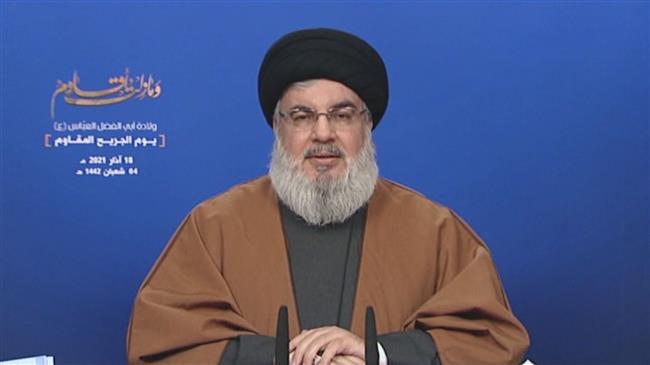
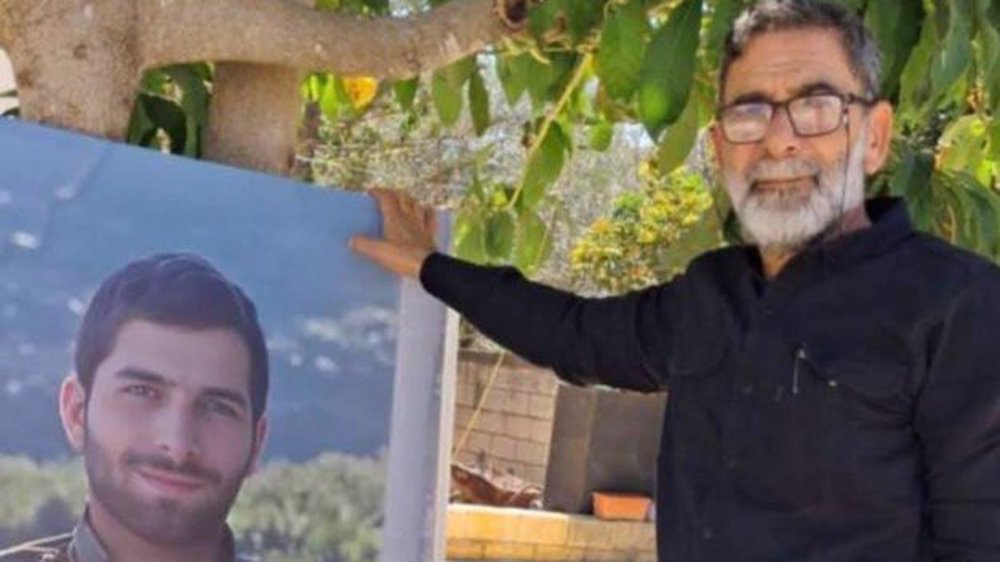
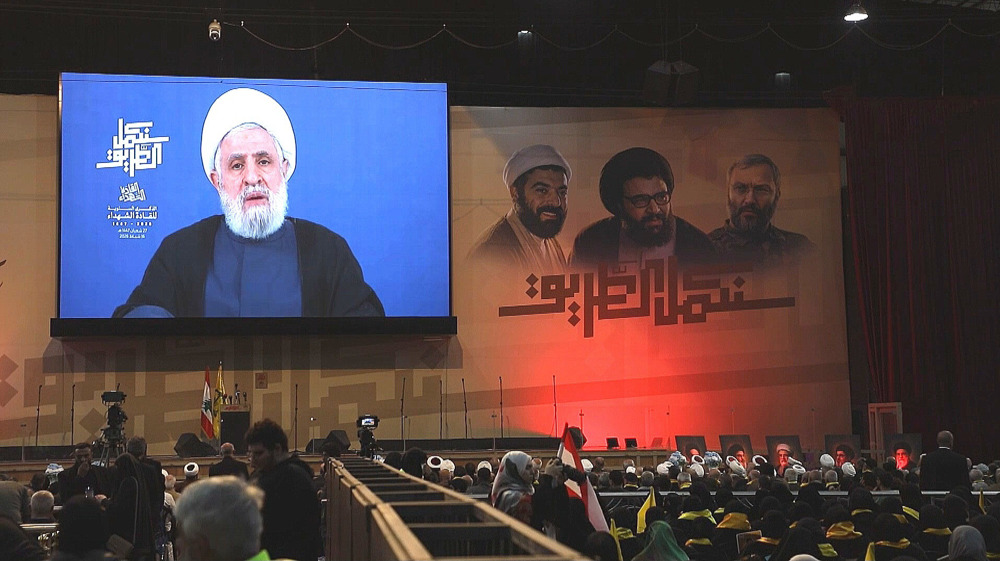
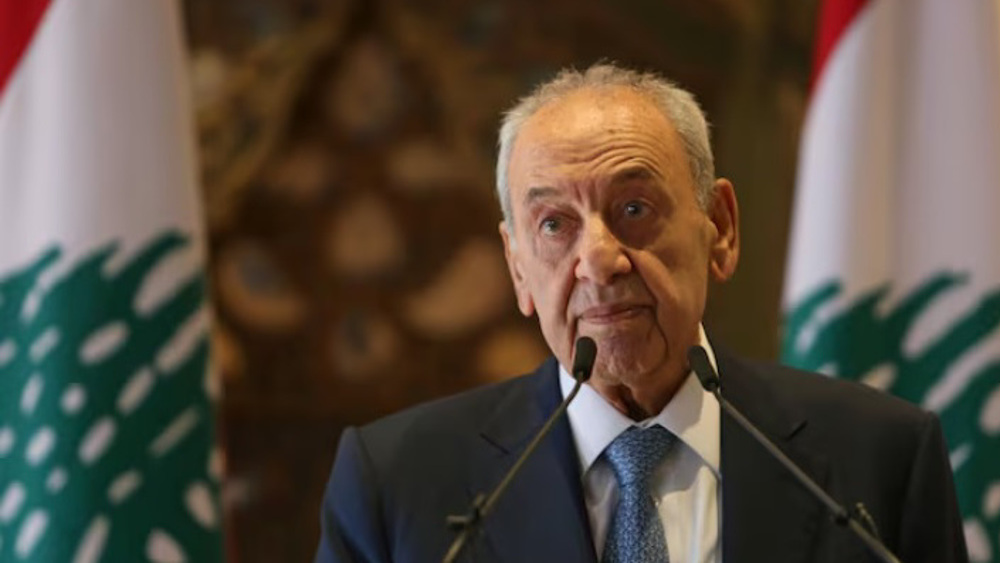



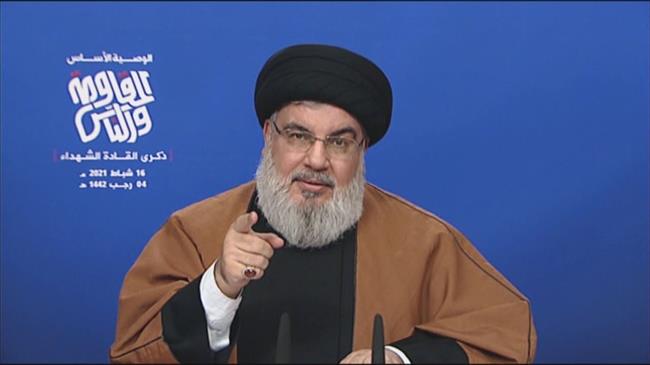
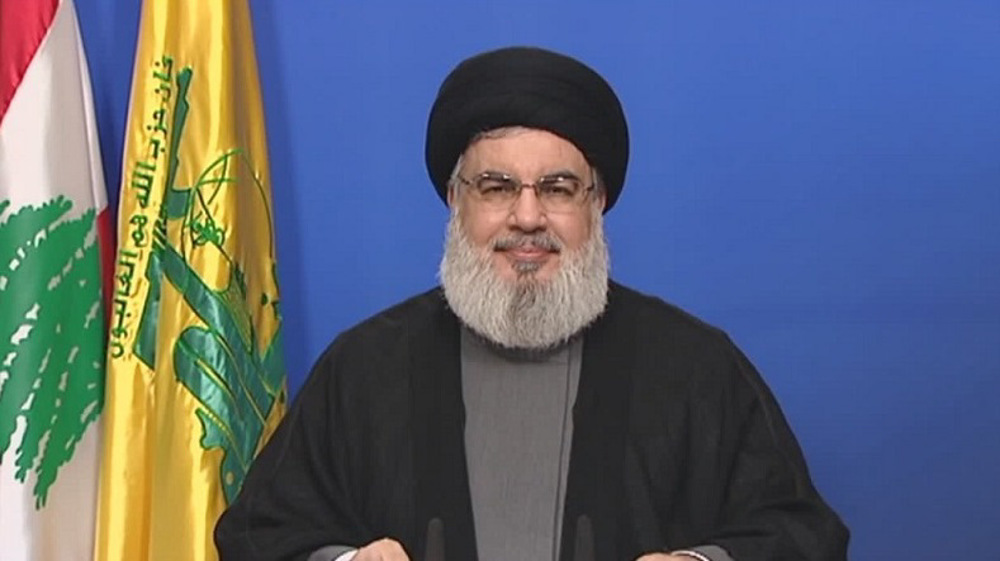
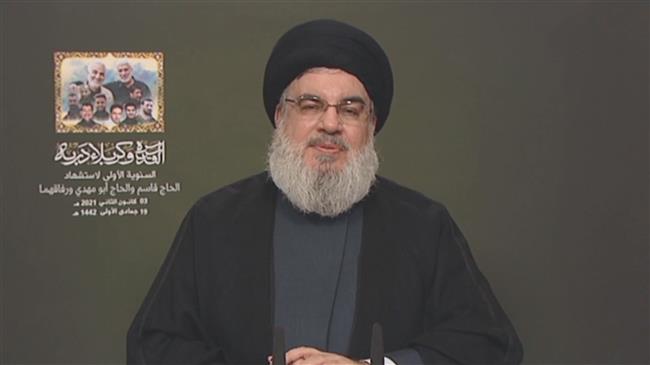
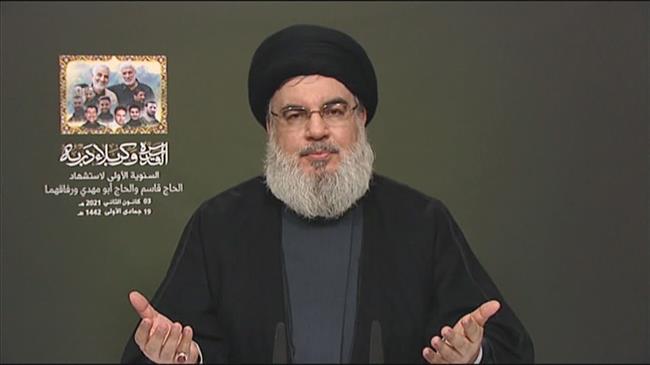

 This makes it easy to access the Press TV website
This makes it easy to access the Press TV website